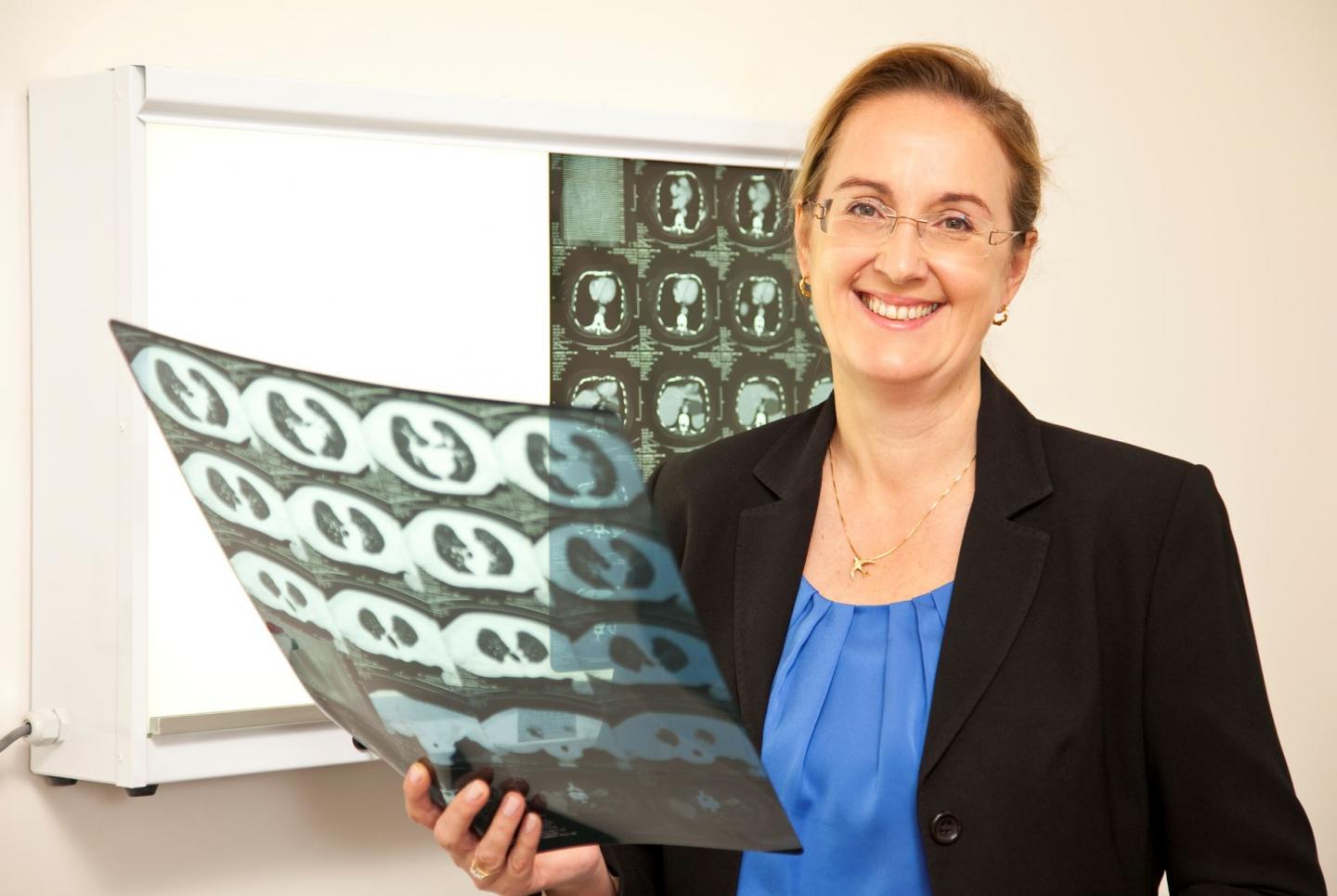Heart disease risks go under microscope

Credit: Photo: Flinders University
An Australian study is set to deliver a world-first model of care to reduce cardiovascular disease in breast cancer survivors.
Cardiovascular disease is Australia’s biggest killer and treatment for breast cancer increases the risk of cardiovascular disease further, yet no formal clinical pathway for prevention, monitoring and management of this risk exists – leading to care that is often fragmented and variable.
Breast cancer is the most commonly diagnosed cancer in Australia and accounts for more than 13% of all new cancers and 28% of all cancers diagnosed in women.
The two-year study will develop a framework for effective, evidence based care, where cardiovascular risk management is embedded into breast cancer care to enable breast cancer patients to reduce their risk of cardiovascular disease and access the services they need in a timely manner while coping with the pressures of their cancer treatment.
Made possible by a $290,000 grant from the National Breast Cancer Foundation, the project is bringing together Flinders University experts in cancer, cardiology and nursing, who will create an integrated care model across cancer and cardiology.
Project Lead, Professor Bogda Koczwara, who leads the Cancer Survivorship Research Group at the Flinders Centre for Innovation in Cancer, points out that many cardiovascular risk factors can be reduced by lifestyle interventions.
“These include weight reduction, diet, exercise as well as medication,” Professor Koczwara says.
“While guidelines exist for managing cardiovascular disease during cancer treatment, the risk factors not related to cancer are often neglected – meaning strategies to improve heart prospects for cancer survivors can be overlooked.
“Neglecting these represents a missed opportunity for better outcomes in terms of cancer and cardiovascular disease.”
Flinders University’s Professor of Cardiology Derek Chew is a co-researcher on the project and Head of Cardiology at the Southern Adelaide Local Health Network.
“It is impractical to expect every breast cancer patient to be seen by a cardiologist,” Professor Chew says.
“However cancer specialists are not always skilled in managing risk factors for cardiac disease, and general practitioners may not be aware of the potential for cardiotoxicity caused by cancer treatment.”
The research team also includes Professor Robyn Clark from Flinders College of Nursing and Health Sciences, who is a Fellow with the Heart Foundation. She emphasised that this project will demonstrate the important role nurses play in cardiac and cancer care.
“The outcome will be a practical model, led by nurses, which will facilitate a safe journey through cancer treatment and give breast-cancer survivors every opportunity to significantly reduce their risk of heart disease.
“We’ll also be evaluating how it’s impacting on actual health outcomes – including quality of life, and cardiac events,” Professor Clark says.
###
Media Contact
Professor Bogda Koczwara
[email protected]
Original Source
https:/




